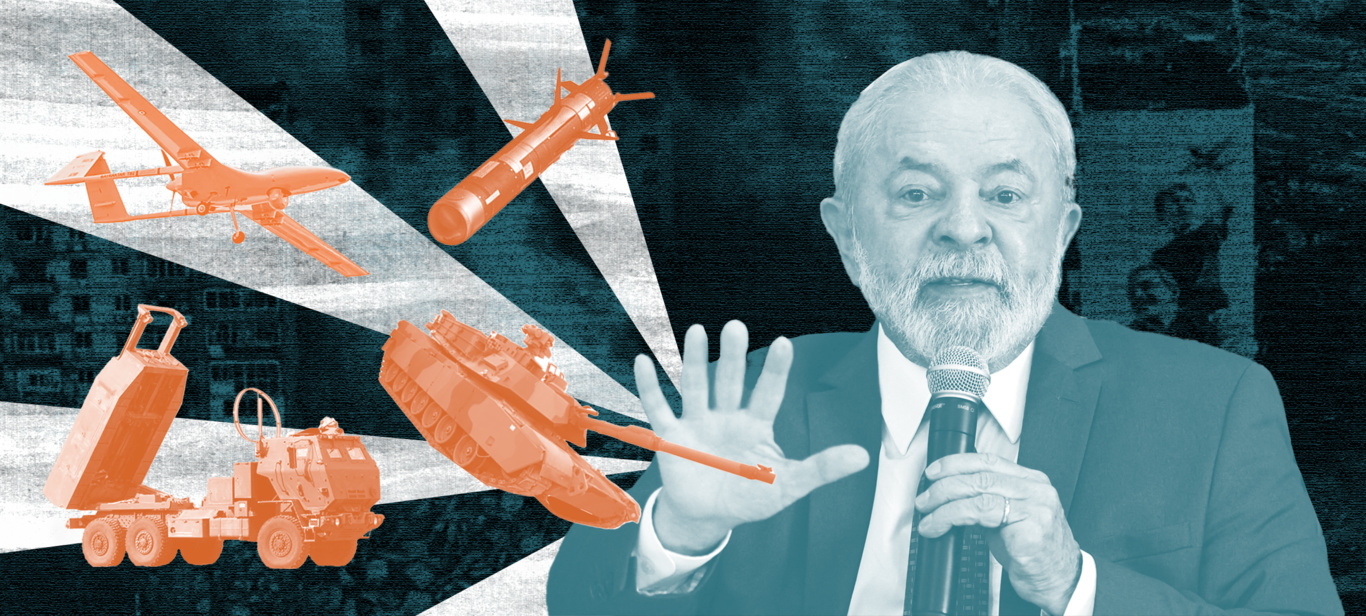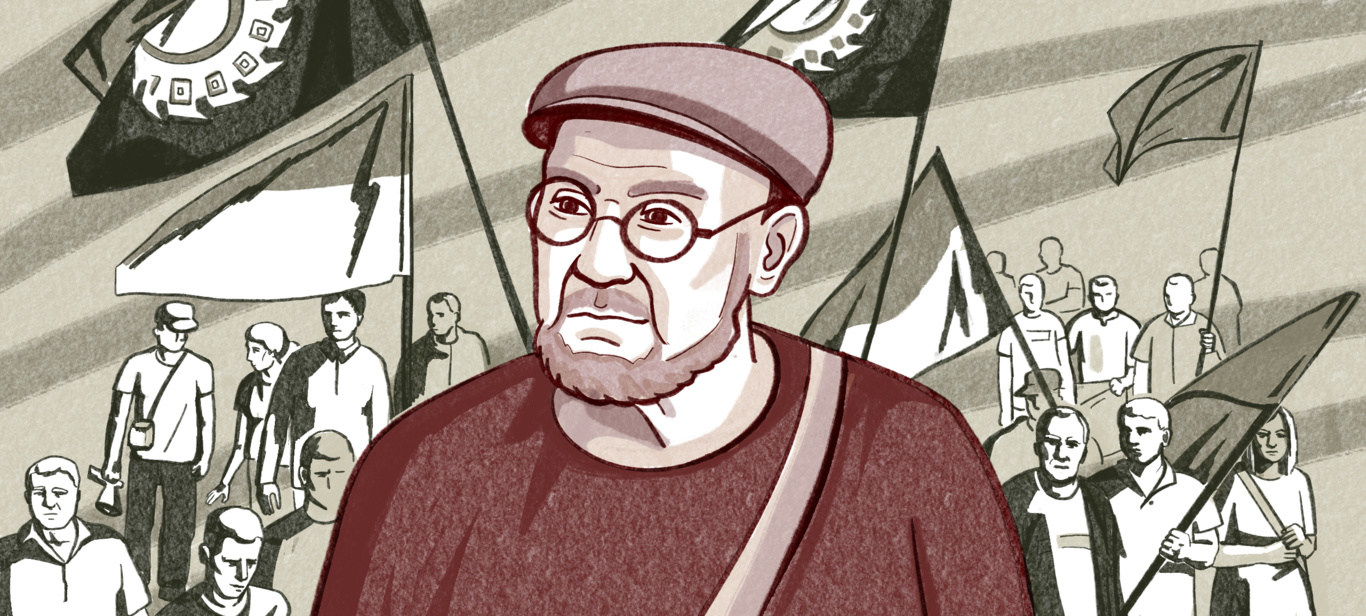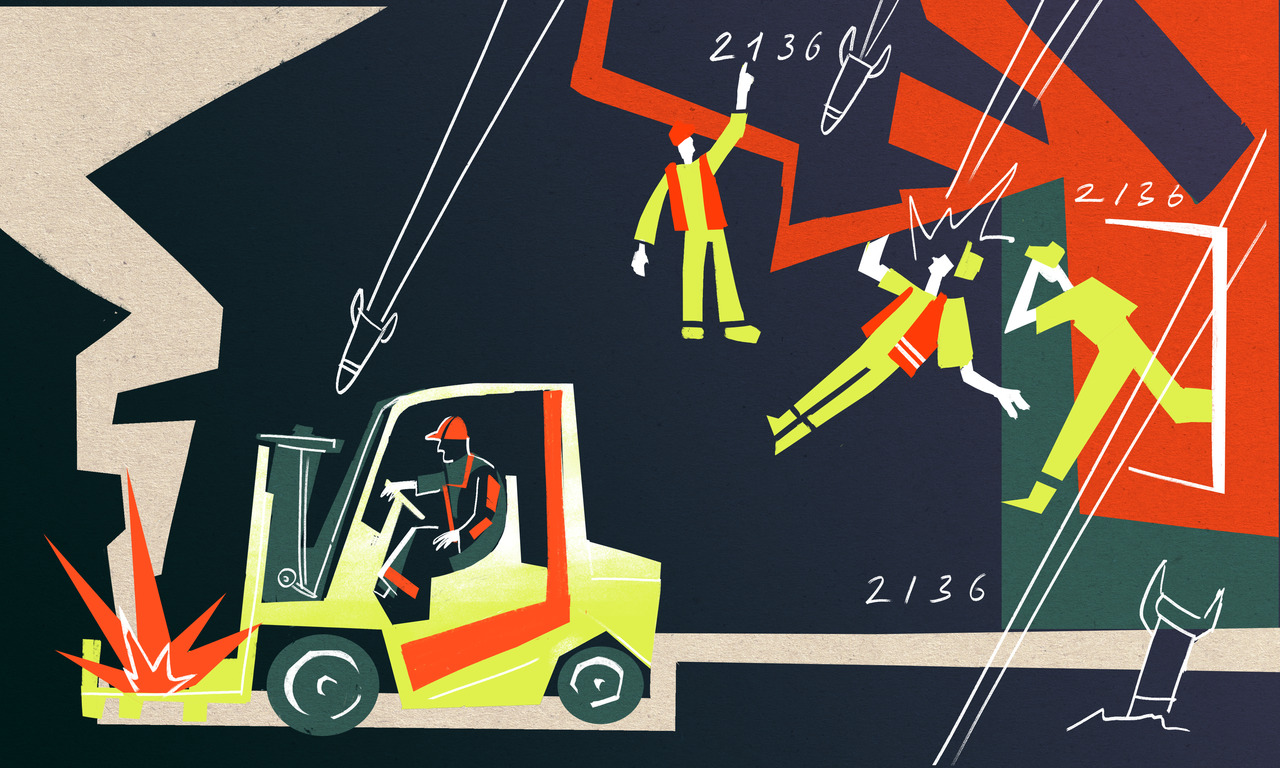Russia’s full-scale invasion of Ukraine has once again raised debates about the instruments for sustaining peace. Since the end of the 1980s, a neoliberal consensus has dominated the global economic dimension. Its goal has been to minimize the number of regulatory institutions, expand free market space, and deregulate labor rights. As a result, working conditions worsen. The latter threatens the well-being of individuals constructing an environment that breeds discrimination, inter-ethnic enmity, and military conflicts. In the 20th century, international institutions and practices appeared in the hope of preventing these and other issues. Those were the International Labor Organization, the Food and Agricultural Organization of the United Nations, and a few international treaties and conventions that now are more than topical for Ukraine and the world. Within the framework of the Feuerbach 11 conference of the Commons journal, we discussed and analyzed the guarantees of sustainable peace, the dangers of deregulation of Ukrainian labor legislation during the war, and post-war reconstruction.
The section was moderated by Artem Tidva, researcher of the labor movement, trade union activist.
Current results and future dangers of the Ukrainian government’s neoliberal course during the war
Working conditions define people’s economic situation, prospects for self-development, and health. Since 1991, Ukrainian labor legislation has undergone many changes guided by “economic expediency,” optimization, and liberalization. As a result, the status of individual workers in the labor market has dramatically worsened. A full-scale invasion only deepened the concerns described.
Vasyl Andreev, candidate of sciences in public administration and deputy head of the Federation of Trade Unions of Ukraine, noted that the national labor market faces an unprecedented crisis: a third of the total employment market is informal employment; salary delay and suspension of collective agreements have become common practices; working conditions have deteriorated, and most enterprises do not have trade unions.
According to the May monitoring report of the International Labor Organization (ILO), 5 million people lost their jobs. It accounts for 30% of the pre-war employment level. Additionally, almost 10 million Ukrainians became displaced. Moreover, Russia’s bombing of Ukraine’s energy and public infrastructure leads to a cumulative worsening of the employment situation, as supply chains are also destroyed.
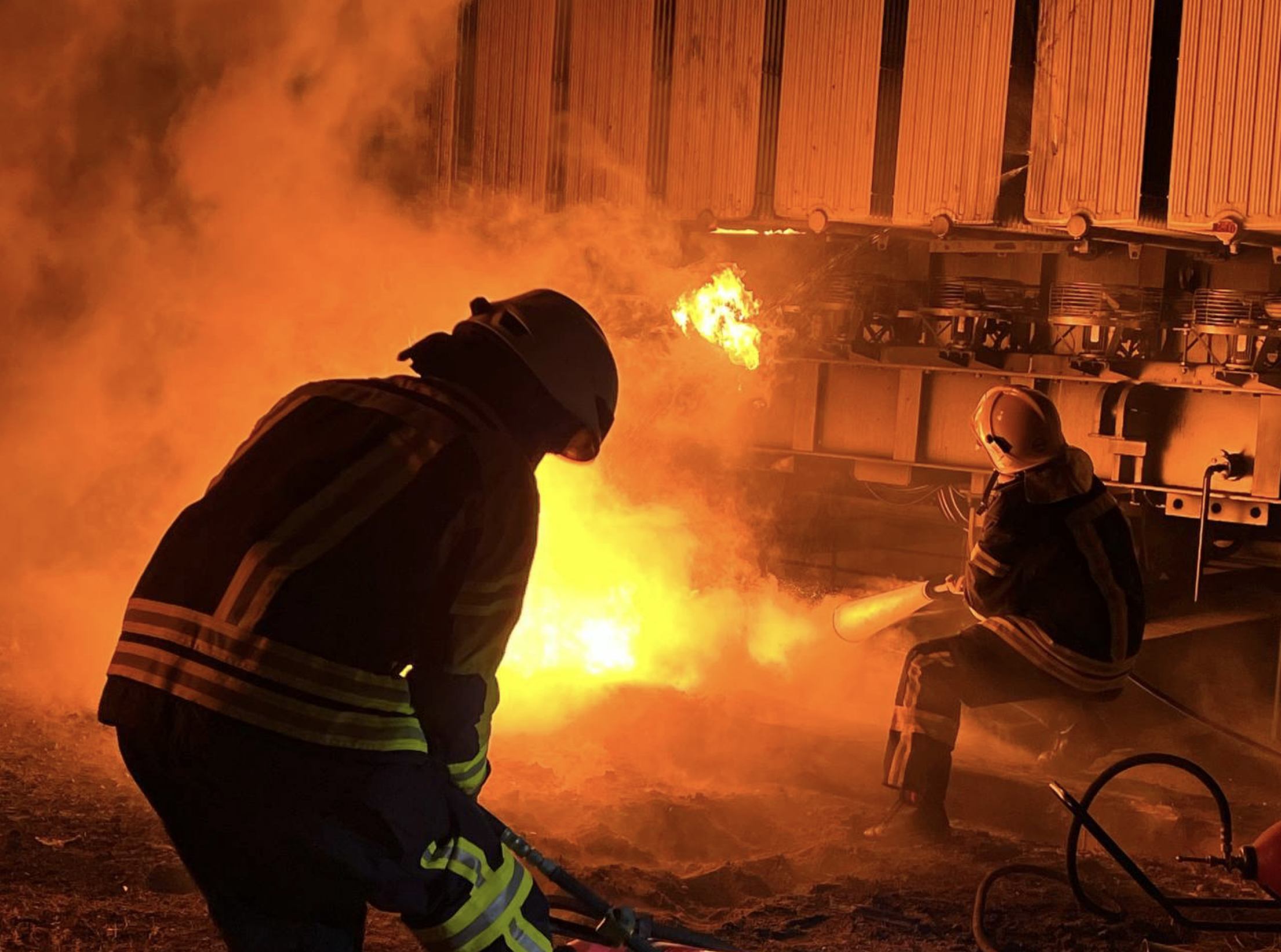
Rescue work after Russian attack on critical infrastructure in Kyiv region, November 15, 2022. Photo: State Emergency Service of Ukraine
Under these conditions, the authorities are endeavoring to normalize the crisis by carrying out labor law reforms rather than laying the foundation to overcome it. According to Vitaly Dudin, chairman of the public organization “Social Movement” and coordinator of the “Labor Defense” project, neoliberal reformers are not aware of how risky the reform they have initiated against the background of the war waged by Russian imperialism against Ukraine is.
“The logic of war works for the labor relations, too. There are such concepts as protection, defense, attack, and liberation, only in a different context. There are opponents here – the employer and employees – the victim and the aggressor if we are talking about the domain of labor relations.”
The new draft laws, some of which are introduced on a permanent basis and not just for the period of martial law, not only enable employers’ abuses but also do not solve the issues caused by the war. Vitaly made an example: the unemployment rate in Ukraine is 35%. That is, since July, when laws on “labor relations’ optimization” (№ 2136, 2352, 2421, 2454) were adopted, the situation has not changed much, even though the economy has stabilized in many regions of the country.
“I am inclined to believe that all policies in the field of social and labor legislation are aimed at limiting the rights of workers, minimizing the expenses of employers, and establishing the opinion that labor is a commodity.”
In Vitaliy’s opinion, there are no objective conditions or institutional components for social discussion and a democratic solution to these issues in Ukraine. There are no independent courts, a strong trade union movement, and representation of left-wing political parties in parliament.
Trade unions have historically fixed the policies of the governments concerning changes in working conditions. For them, it is hard to communicate with representatives of the Ukrainian authorities. However, this is a must for democratic and socially oriented post-war reconstruction, noted Pavlo Babich, deputy head of the Youth Council of the Federation of Trade Unions of Ukraine. The dialogue is becoming increasingly problematic, as the unions have faced the following challenge: labor reforms practically exclude unions from the conversation about the suspension of labor relations with employees.
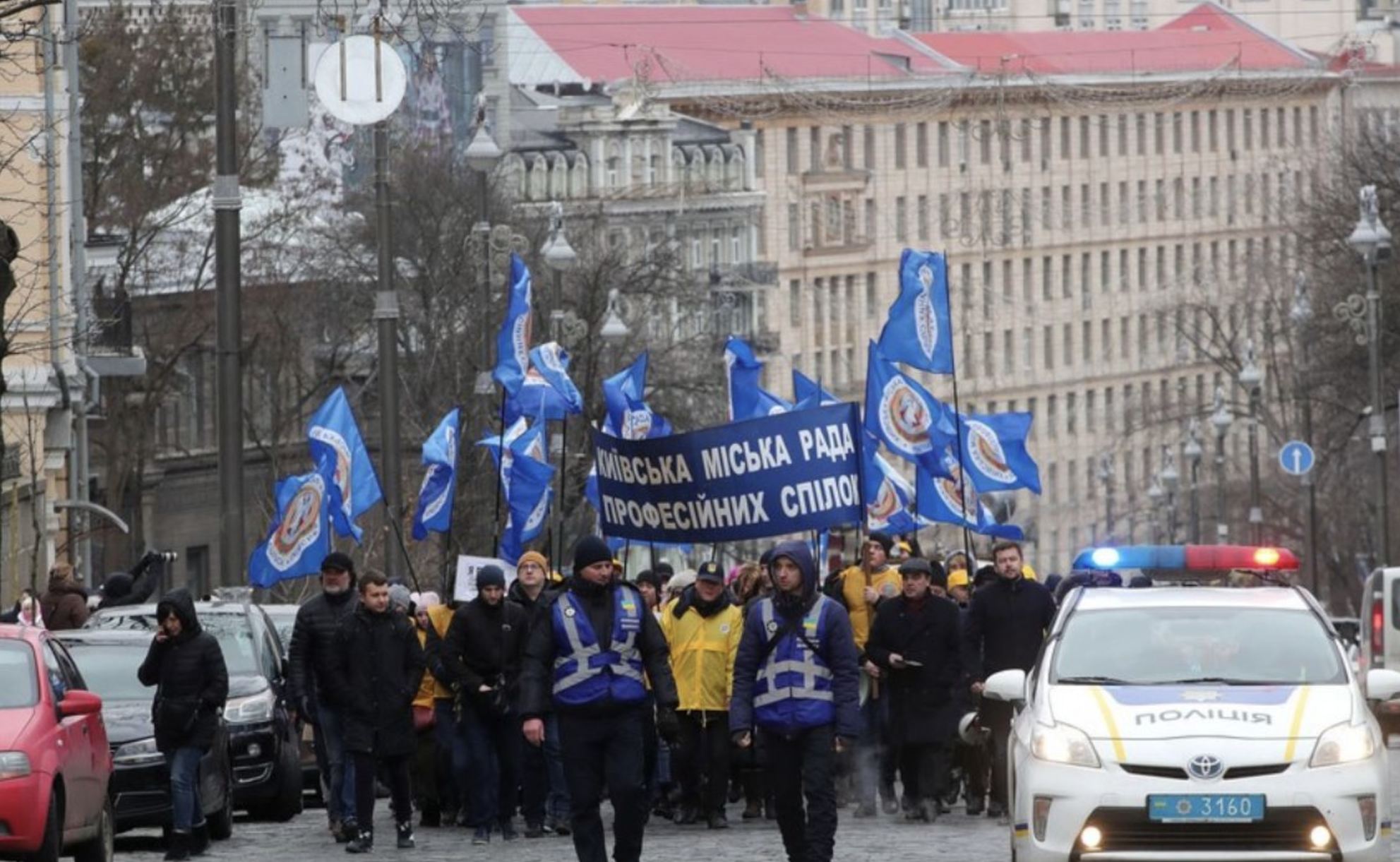
The Federation of Trade Unions of Ukraine and activists of youth and public organizations at a protest against labor legislation, October, 2021. Photo: csee-etuce.org
Consequences of the Kremlin’s long-term attack on labor and civil rights in Russia
Modern Russia is a vivid example of the neoliberal reforms’ influence and the reduction of labor rights. Kiril Buketov, an expert at the Global Institute of Labor, reported on the social and political consequences these policies led to.
Official Russian statistics show that more than 60 million people live below the poverty line. As a trade union activist, Kiril witnessed people’s grassroots attempts to create unions and fight for better working conditions. However, they got brutal repressions as a reply. In retrospect, it becomes clear that Russian authorities, national, and transnational corporations aimed at keeping people poor. Even during the rapid economic development, when significant profits filled the state budget, the minimum wage remained very low.
According to Kiril, this phenomenon is a product of the Russian government’s deliberate policy. Repressive apparatus supports this economic vector to enrich the oligarchs.
“When trade unionists tried to conduct campaigns demanding from transnational corporations to raise wages, the managers of the latter, considering it extremist, contacted the security services. It happened in Minsk at the Coca-Cola factory, Perm at the Nestle factory, and many other places.”
When activists demand such companies leave the Russian market, as they sponsor military aggression against Ukraine via paying taxes, the latter stress that Russian social standards depend on their enterprises; therefore, such actions would be irresponsible.
The described policy leads to poorer classes being sensitive to propaganda. People in Russia cannot critically evaluate the situation for many factors: low wages, limited access to quality information and education, etc. According to Kiril, these very people are the core volunteers fighting against Ukraine, hoping to receive a reward for their military service.
“Poverty in one country is a danger to others, as the impoverished population is the most suitable resource for military propaganda and inciting hatred. It is easiest to carry out mobilization among the poor. It is exactly what has been happening in Russia.”
Thus, the issue of economic equality and means of establishing a balance between different social groups plays a leading role in securing peace. Decent working conditions are a prerequisite for the democratization of society and the prevention of inter-ethnic enmity.
What role do international institutions play in protecting workers’ rights and ensuring sustainable peace?
The First World War shook humanity with the scale of devastation and the number of victims. The primary task was to preclude future similar catastrophes. The International Labor Organization (ILO) emerged in 1919 as one of the mechanisms to prevent wars by securing decent working conditions all over the world.
In 1944, Edward J. Phelan, Director-General of the ILO, drafted the Declaration of Philadelphia, which defined the main objectives and vision of the organization. According to the document, labor is not a commodity; poverty is a threat to the common well-being; freedom of speech and assembly is the key to progress. Moreover, material well-being must be a right regardless of faith, gender or race.
Serhiy Savchuk, a national coordinator of the International Labor Organization in Ukraine, noted that the ILO adopted the Philadelphia Declaration at the peak of World War II and offered a vision on which post-war reconstruction should base. Even though the Russian-Ukrainian war is still going on, it is necessary to talk about the post-war Ukrainian labor market. For this, we may rely on the documents of the 20th century. For instance, the Declaration of Philadelphia, the Universal Declaration of Human Rights of 1948, the International Covenant on Economic, Social, and Cultural Rights of 1966, which includes the rights to favorable working conditions and the right to form trade unions. Also, the 1957 Treaty of Rome, in which social dialogue is defined as one of the main instruments of policy formation and its implementation in the social and labor sphere.
According to Serhiy, now, Ukraine is successfully working with this heritage. After adopting the association agreement between Ukraine and the EU, we consented to implement the principles of the “Acquis Communautaire” at the level of legislation and in practice (a set of rights and norms based on the ILO declaration, which all EU member states are obliged to follow).
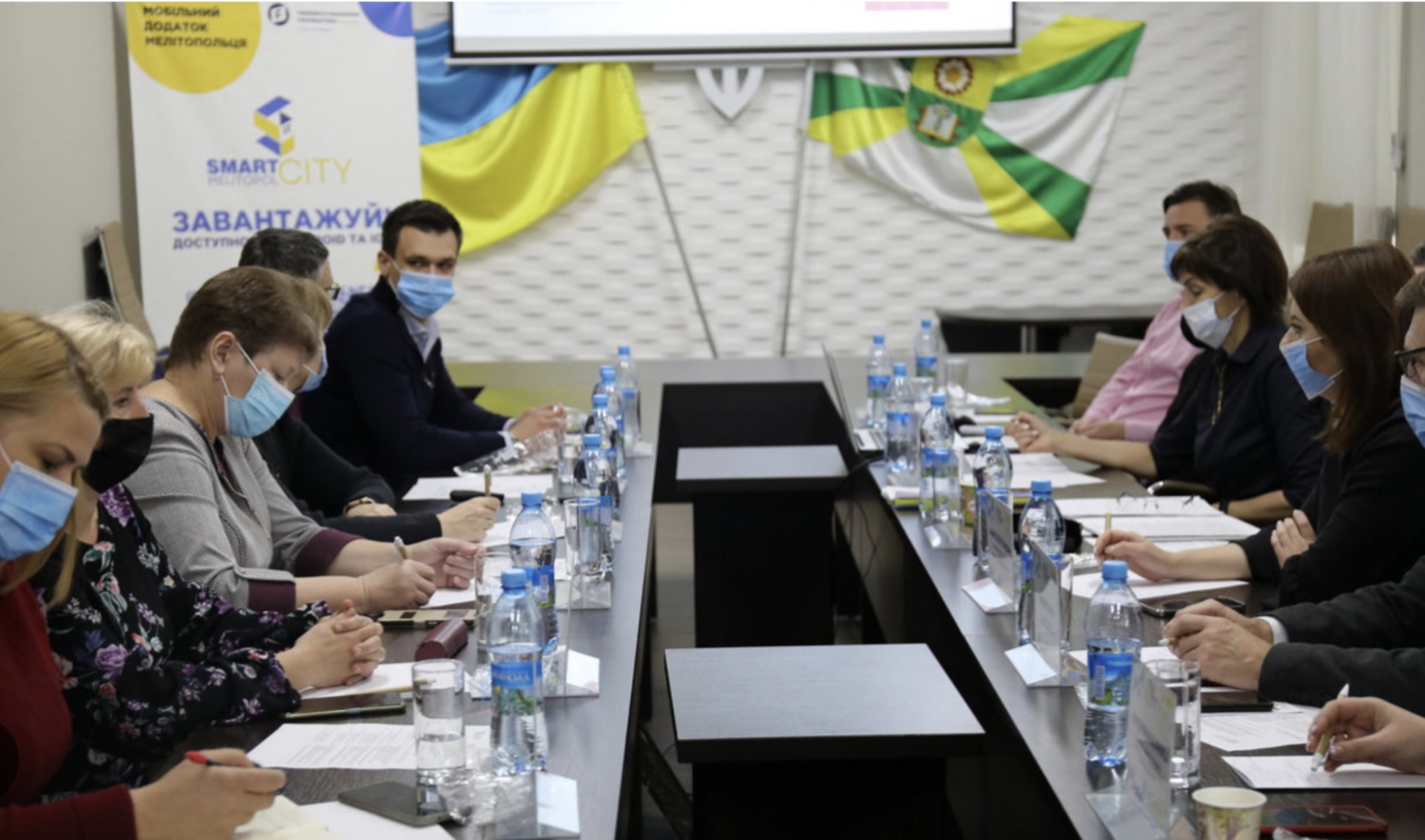
Working meeting within the International Labor Organization project “Inclusive labor market for job creation in Ukraine”, Melitopol, December 16, 2021. Photo: www.mlt.gov.ua
Ukraine also ratified 8 fundamental ILO conventions related to basic human rights in the field of labor: freedom of collective bargaining; elimination of all forms of forced or compulsory labor; eradication of child labor; elimination of discrimination. This year, ILO adopted two new conventions, one of which Ukraine also ratified.
In Serhiy’s opinion, considering the recent labor code reforms, the ratification of these documents is also topical as it requires the authorities to comply with a number of international norms.
“ILO Conventions set the framework for the flight of reformist thought in the field of labor legislation.”
In addition to guidance on labor standards, the ILO has alternative mechanisms for achieving sustainable peace. Today, more than 35 activists of the trade union movement are imprisoned in Belarus. In November, the ILO will hold a conference to raise the issue and, for the first time, consider the application of Article 33 of the organization’s constitution, which imposes sanctions on a country in response to its repressions of trade unionists. Zelensky, one of the most influential people on the planet today, could call on the ILO leadership to apply this article to the Russian Federation as well, Kiril Buketov believes.
Currently, the right-wing political forces highlight that securing sustainable peace by creating decent working conditions is obsolete and does not bring any benefit. However, these principles affected the European standards in the field of labor hire and guaranteed the well-being of the EU. Therefore, Ukraine should actively participate in the ILO activities for prosperous post-war reconstruction.
“The ILO must become stronger and more influential. Ukraine has every chance to become much more active in the ILO if it changes its neoliberal course.”
Alternative visions of Ukrainian labor legislation development
To overcome the economic crisis caused by the war, the government chose to ignore workers, trade unions, and civil society. Instead of providing labor guarantees, the Ukrainian authorities decided to redirect the burden of war from employers to workers. According to Kiril Buketov, this approach duplicates the recent actions of the Russian leadership.
“The actions of the Ukrainian government are really surprising. If you look at mentioned draft laws that worsen the situation of workers, you can see the resemblance to the Russian path in terms of labor. Ukraine should not follow it. It should move towards European values and principles in labor legislation.”
It means implementing measures for the labor collectives’ development, democracy, and grassroots influence on the law-making process. Vitaly Dudin pointed out that Ukraine needs “suppression and counterbalance” mechanisms between various social actors, such as the National Tripartite Social and Economic Council. However, today this institution does not fully perform its functions. There are good examples of such councils in many ex-socialist EU countries, for instance, Bulgaria and Romania.
It is crucial to ensure the labor code implementation regardless of its content. That is, in the interests of the weaker party. To achieve this, we need effective control bodies, namely, the labor inspectorate.
“We need a law on labor inspections, which will allow inspecting of unscrupulous employers, ceasing production in case of danger to workers, particularly during wartime.”
Serhiy Savchuk noted that we need to change the labor legislation if Ukraine aspires to become a member of the EU, as the current one violates international norms. Healthy labor legislation will be Ukraine’s “entrance ticket” to the EU. Moreover, the National Security and Defense Council of Ukraine recently initiated work on the ratification of Convention No. 170 “On safety in the use of chemicals in production,” which will also stimulate the labor market recovery.
The question of how to preserve peace is again acute, both in Ukraine and throughout the world. It is a challenge to Ukraine, as the neoliberal course cannot provide decent working conditions and a space of respect and inclusiveness. Contrastingly, such policies eliminate the middle class, widening the gap between the poorest and the richest, depoliticize society, and eventually lead to an authoritarian-technocratic political regime, as it happened in Russia. The path of market fundamentalism is one of the biggest challenges to sustainable peace.
Despite all the dangers, the Ukrainian influence within the international community has significantly grown. It creates an opportunity for the authorities to draw attention to the conventions and treaties developed in the 20th century by the International Labor Organization and other institutions. It is critical to underline their urgency and the need for implementation. Post-war reconstruction should offer employers a safe space with decent working conditions. And we need to talk about it now!
Labor Rights as a Guarantee of Sustainable Peace
Recording of the discussion with English simultaneous interpretation:
Author: Maksym Shumakov
Translated by Yulia Kulish
Cover: Kateryna Gritseva

